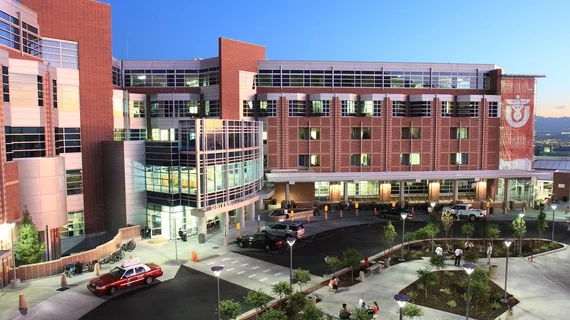Worker dies after MRI machine plummets outside local hospital
A contracted worked was killed Wednesday morning while moving an MRI machine down three floors at the University of Utah Health.
The industrial accident occurred around 11 a.m. at the loading dock located on the west side of the hospital, north of its school of medicine. While attempting to move the machine outside of the building from the fourth to the first floor, the scanner fell with the worker alongside it.
An emergency team transferred the man to the Salt Lake City hospital’s ED, but he later died. A second worker with the company contracted to move the MRI machine suffered a minor injury, the University of Utah said Sept. 15.
"This was meant to be a milestone occasion for our team, and something that has been in the works for several years. We are incredibly saddened to learn that someone tragically died in this incident and our hearts go out to the family,” Alison Flynn Gaffney, executive director of University Hospital service lines and system planning, said in a statement.
The hospital is now working with local authorities to determine what went wrong. A Salt Lake City Fire Department hazmat crew responded to the scene, while local occupational safety experts are also investigating, the Salt Lake Tribune reported. At a press conference, Gaffney said the move required scaffolding and other infrastructure, with emergency and safety plans in place to transport the 20,000-pound machine.

